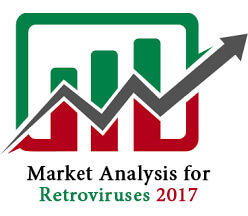
Walusungu Trevor Nyasulu
Current Executive Director for Foundation for Equal Rights and Opportunities (FERO),Malawi
Title: The use local herbals to enhance std and Hiv/Aids management in rural malawi
Biography
Biography: Walusungu Trevor Nyasulu
Abstract
Malawi is among the countries worst affected by the HIV epidemic. The number of People Living with HIV and AIDS (PLHIV) is estimated at about 1,000,000 which includes 850,000 people aged 15 years and above and 170,000 children below 15 years of age. The most recent estimates on the epidemic are based on modeling using the UNAIDS SPECTRUM, which estimates the prevalence of HIV at 10.3% indicating a slight reduction in prevalence from 10.6% in 20101. It was estimated in 2013 that 34,000 new infections occurred in the year, including 7,400 new infections amongst children aged less than 15 years2. Annual AIDS deaths were estimated at 48,000, slightly less than half of what they were at the epidemic's peak in 2004, at 99,000.This early decline follows the natural course of the epidemic and was probably also driven by a reduction of risky sexual behavior as the population became increasingly aware of HIV as the cause for the massive death wave the country experienced. Between 2000-2004, evidence strongly suggests that behavior changes (e.g. increases in condom use, decreases in the proportion of men having sex with more than one woman) contributed significantly to decreases in HIV in Malawi’s epidemic.
Malawi health care services is majory hit by by in adequate health care workers has resulted in to a tremendous HIV/AIDS patients living in rural areas of Malawi who desperately seek access to health care. In contrast, the ratio of traditional healers is considerably higher, and represents a tremendous opportunity to leverage existing community support networks and resources for widening the current health care worker in HIV/AIDS prevention and control efforts. In this paper, I propose using rapid assessment procedures (RAPs) to create a fast, effective, decentralized participatory model of engaging local traditional healers with state health care service providers to enhance access to ARVs for HIV/AIDS patients living in rural areas of Malawi.
The feasibility of integrating traditional healers in HIV/AIDS interventions in Malawi needs to be seriously investigated based on the results in our SubSarhara African countries. Traditional healers are a vast untapped source of human capacity. If trained and educated in a participatory collaborative manner with biomedical health practitioners, they could complement and strengthen the HIV/AIDS prevention, control and care services in Malawi. As shown, traditional healers are more than eager to improve their comprehension of HIV/AIDS treatment and are motivated to participate in rural areas where patients are most difficult to reach. Furthermore, traditional healers have proven themselves, in many studies throughout SubSaharan Africa, to be worthy allies and would greatly assist Malawi's strategies to curtail the spread of HIV/AIDS infection and provide much needed human resource support for ARV adherence and compliance. The success of integrating traditional healers into Malawi's HIV/AIDS National Action Framework, will require the support and acceptance of policymakers, public health officials and international donors. Active participation of community innovations, cultural leaders, the formal and informal segments of the private sector, Community Based Organizations, PLHIV and community groups is needed to complement the efforts of the public sector in finding the cure for HIV.

